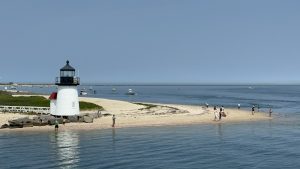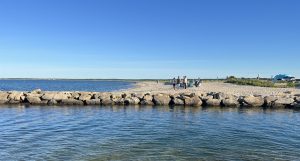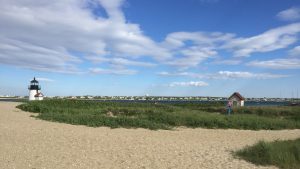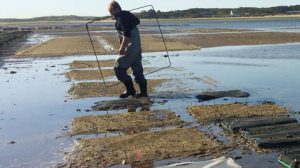Search results for: Canadian%20Online%20Pharmacy%20%E2%AD%90%20www.HealthMeds.online%20%E2%AD%90%20Buy%20Tadalafil%20Canada%20-%20Purchase%20Tadalafil%20Canada
Nantucket Coastal Conference 2025
Nantucket Coastal Conference June 10, 2025 9:30 a.m. – 5:00 p.m. Location Great Harbor Yacht Club 96 Washington Street Nantucket, Mass. 02554 Cost This is a free conference. Agenda 9:30 am – 9:45 am – Welcome and Kickoff 9:45 am – 10:15 am | Keynote Speaker Alison Brizius, director, Mass. Office of Coastal Zone Management…
Read MoreFlying High with NWS
Wednesday, October 7, 2020 Up, Up, and Away – Flying High with NWS Weather Balloons with Jeff Orrock, NOAA’s National Weather Service in Wakefield, VA NOAA launches weather balloons twice a day across the entire country. Weather balloons, also known as sounding balloons, are a special type of high-altitude balloon carrying instruments to near the…
Read MoreThe Conservation and Disposal of Ocean Hard Minerals: A Comparison of Ocean Mining Codes in the United States
The Conservation and Disposal of Ocean Hard Minerals: A Comparison of Ocean Mining Codes in the United States Hoagland, P. Natural Resources Journal, Vol. 28, pp. 451-508, 1988 WHOI-R-88-024
Read MoreMartha’s Vineyard Coastal Conference 2024
Martha’s Vineyard Coastal Conference October 1, 2024 9:30 a.m. – 4:30 p.m. The free conference will be held at the Martha’s Vineyard Film Society 79 Beach Rd Vineyard Haven, Mass. 02568 Contact Shelly McComb, WHOI Sea Grant and Cape Cod Cooperative Extension Islands Conference Homepage & Archive AGENDA 9:00 a.m. – Welcome and Check…
Read MoreTeacher Workshop: July 15, 2022- Sea Level Rise
The Perfect Storm: Exploring how sea level rise and storms intersect Presenters: Greg Berman, Coastal Processes Specialist, Woods Hole Sea Grant and Cape Cod Cooperative Extension – The Science of Sea Level Rise and Storms, Presentation Slides Shannon Hulst, Floodplain Specialist, Woods Hole Sea Grant and Cape Cod Cooperative Extension – Applying the Science:…
Read MoreCoastal Conference Series Spotlights Nantucket
More than 100 people attended the second biennial Nantucket Coastal Conference at the Atheneum on June 26, 2019, to hear about the coastal issues that impact Nantucket and the approaches government, industry and non-profit organizations take in addressing them. Fifth in a series of conferences that started in 2013 and alternate between Martha’s Vineyard and Nantucket,…
Read MoreCoastal Impacts Newsletter Winter 2022
Coastal Impacts Woods Hole Sea Grant Newsletter February 2022 Letter From The Director Business Continuity Planning Program Scheduled National Flood Insurance Program Updates Community Rating System Updates Upcoming Floodplain Management Training Funded Researchers Working on Real-Time ‘Shark Forecast’ Working Toward Shellfish More Robust to Disease Pressures Girls in Science Now Accepting Applications for 2022 Sessions Dune Sign…
Read MoreStudy Provides Measurement of Nitrogen Removal by Local Shellfish
Towns along Cape Cod and the Islands are looking to shellfish not only as tasty culinary treats, but also for help cleaning up waters degraded by excess nitrogen in the region. While nitrogen is essential for all plants and animals, too much nitrogen in ponds and waterways—often caused by fertilizer runoff and septic tanks—can fuel…
Read MoreSome Determinants of Maturation in Brook Trout, Salvelinus fontinalis
Some Determinants of Maturation in Brook Trout, Salvelinus fontinalis McCormick, S.D. and R.J. Naiman Aquaculture, Vol. 43, pp. 269-278, 1984 WHOI-R-84-019 Size, age, growth rate and photoperiod (the controlling effects of the length of the day on phenomena such as reproductive cycles in mammals, migration patterns in birds, flowering in plants) were examined for their…
Read MoreStudy Measures Nitrogen Removal by Shellfish
February 6, 2017 — Towns along Cape Cod and the Islands are looking to shellfish not only as tasty culinary treats, but also for help cleaning up waters degraded by excess nitrogen in the region. While nitrogen is essential for all plants and animals, too much nitrogen in ponds and waterways—often caused by fertilizer runoff…
Read More



